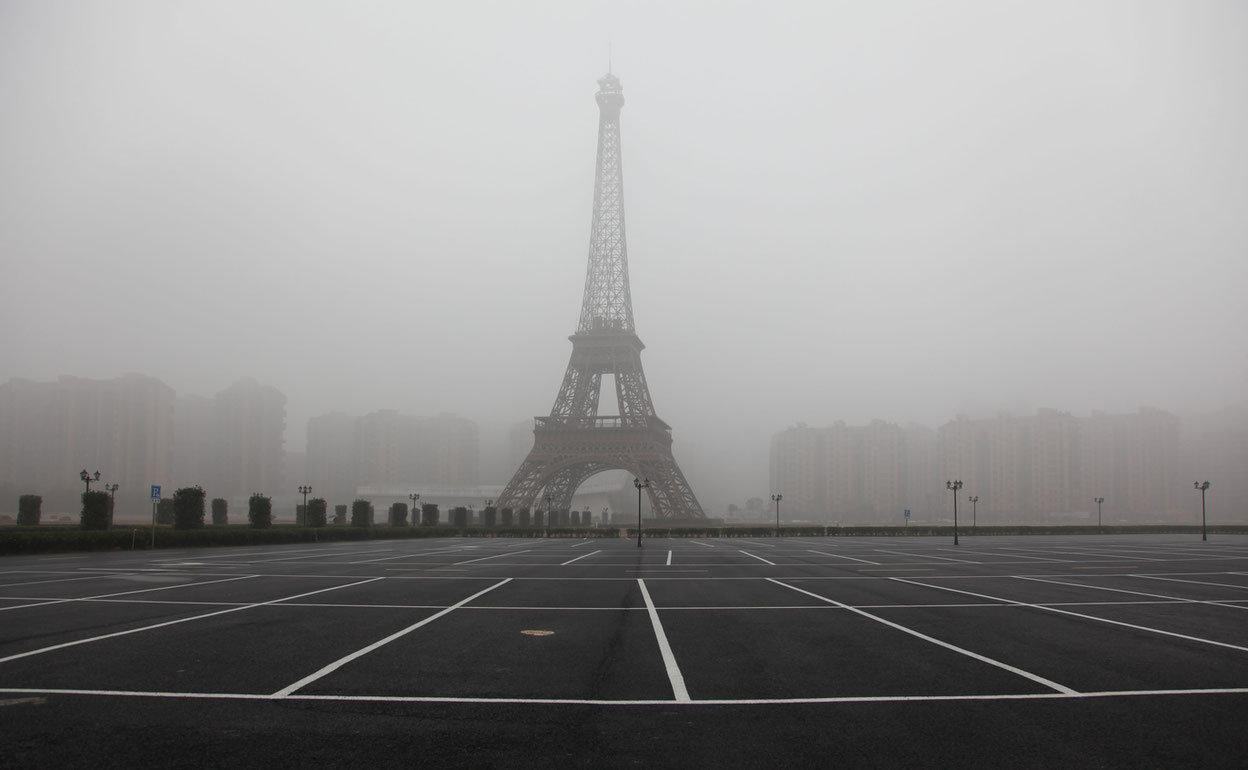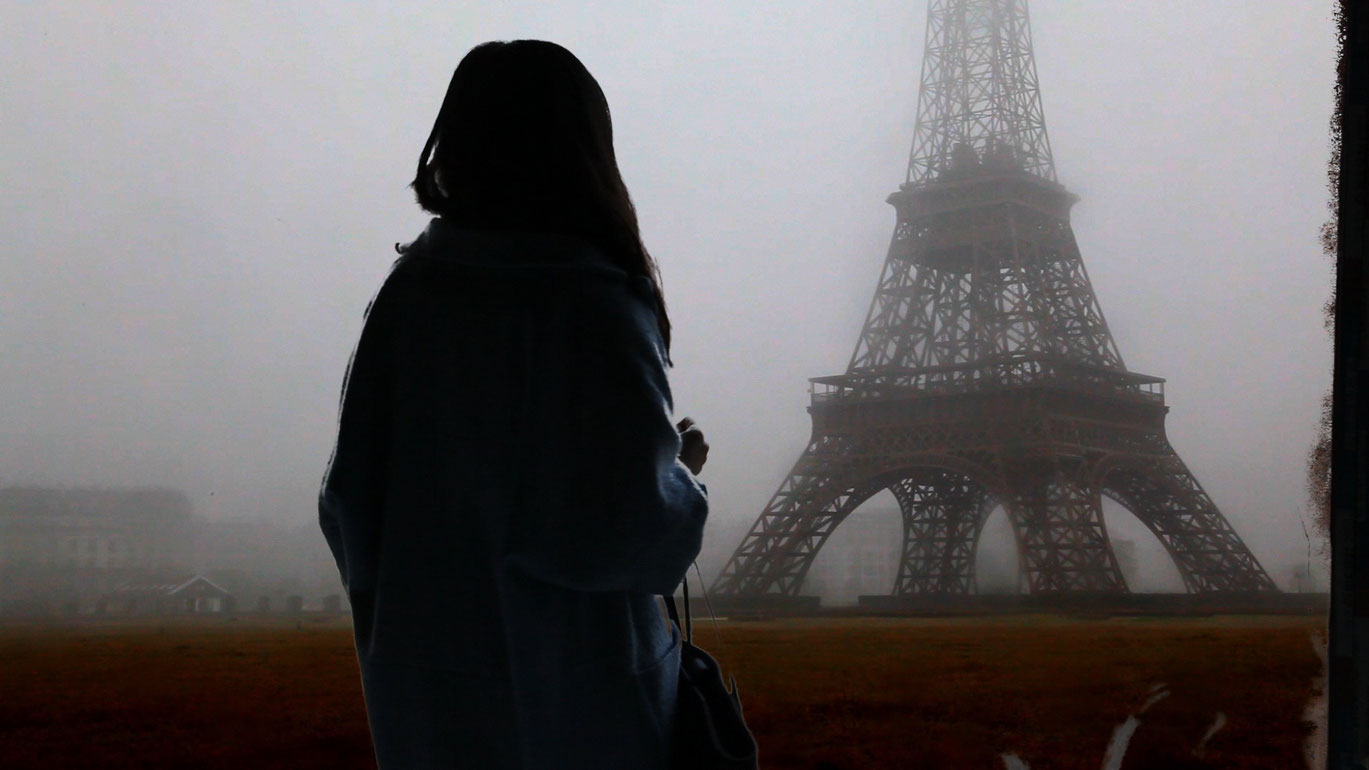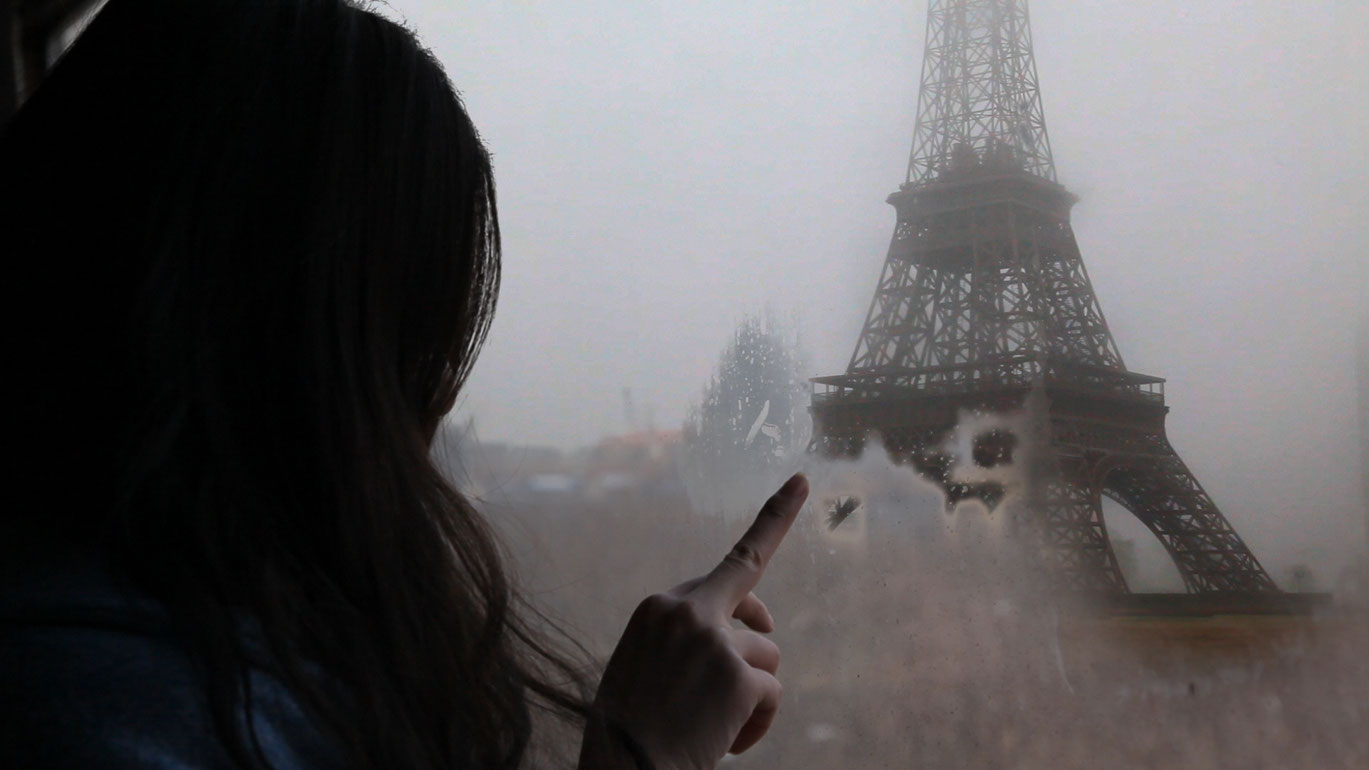We’ll always have Paris
Paris is not necessarily the first choice as the setting for a ghost story. The excessive romance of the French metropolis’ cultural symbols renders them simply unsuitable as backdrop for horror stories. But that’s not the case in Ella Raidel’s four-minute short film, which arose in the course of her extensive research project Of Haunted Spaces and refers to an upcoming feature film project. In We’ll always have Paris, the Eifel Tower, Champs-Élysées, magnificent fountains, and trimmed hedges stand as faux French in the hazy rain of Tianducheng. The residential complex located in the suburbs of the Chinese megapolis Hangzhou is one of the countless, largely unpopulated pop-up sites that sprung up overnight through high-speed real-estate speculation. In Raidel’s film, the Eifel Tower is the anti-gravity center of a phantom zone furnished with stark high-rises, parking areas, and gardens—an urban proposition that amounts to nothing. As the camera focuses on the building clone and its surroundings from various perspectives, the film suddenly changes tone. A woman who at first is visible only from behind enters the urban planning remake. Through a construction site corridor, she enters a conference space, improvised by partition walls, from which the view of the tower’s base condenses to an image of the uncanny. Like the pastiche in Tianducheng, We’ll always have Paris also contradicts the logics of representation; the film itself becomes a simulation of an architecture film, of a capitalism critique, of a ghost story: as they say in the film classic Casablanca, "We’ll always have Paris." But what do we have here? (Esther Buss)
We’ll always have Paris
2020
Austria
4 min



